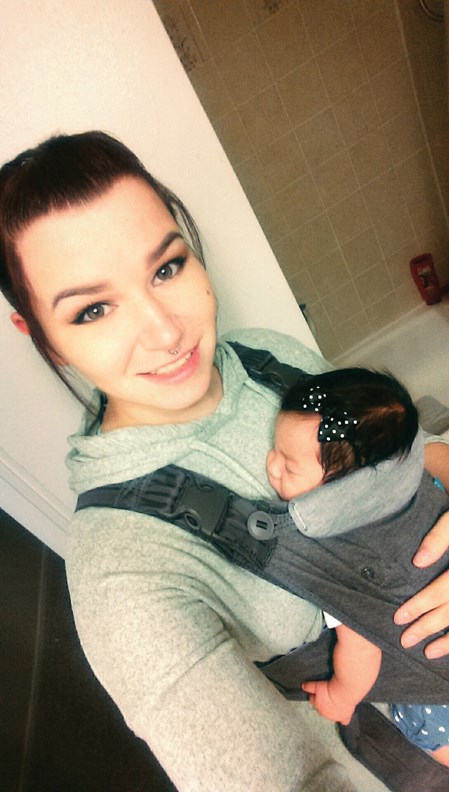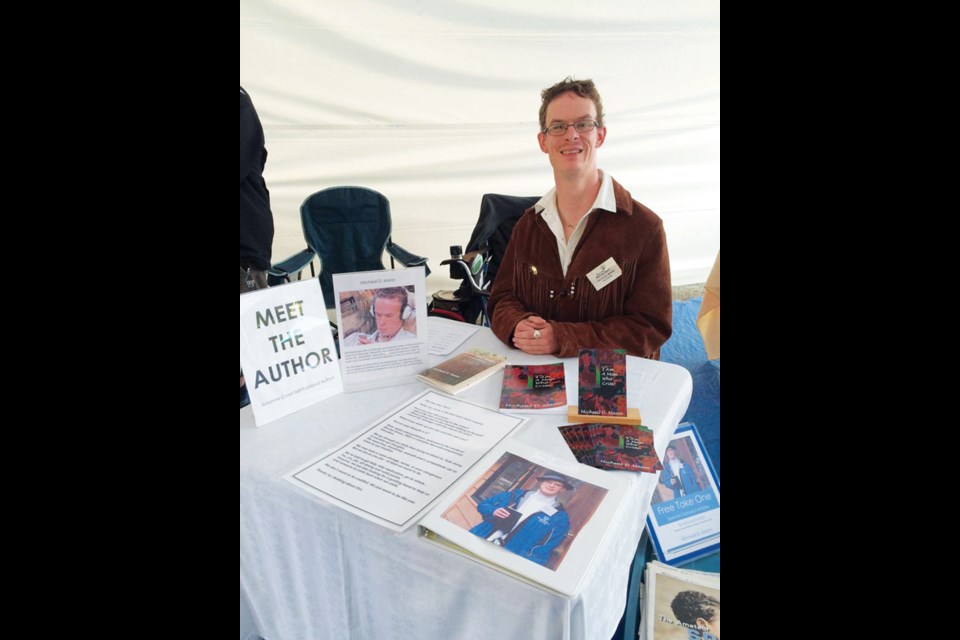In 2012 four brave individuals living with fetal alcohol spectrum disorder (FASD) shared their stories with the Sunshine Coast by providing interviews to Coast TV so that a documentary could be produced. The Many Faces of FASD premiered at Chatelech Theatre in the spring of 2013. In recognition of International FASD Awareness Day on Sept. 9, these individuals have provided a current snapshot of their lives.
Since the premiere, Aaron has gone on to obtain his first year carpentry certification through the SD46 ACE-it program and graduated from Chatelech Secondary School. In the last year he has worked in the industry obtaining many hours towards his first year apprenticeship. Aaron lives in Sechelt and enjoys free time spent with friends and family exploring the backcountry in his 4x4 pickup. He is a proud uncle and brother and looks forward to pursuing his second year carpentry certificate through Vancouver Island University. As far as challenges go, money can be frustrating, and little things, like timesheets and the extra responsibilities of full-time work life. In this way, Aaron needs support to stay on top of the day-to-day details.

Christine continues to call Ottawa home and recently became a mother to two-month-old Violet. She lives with her partner and is staying home to parent Violet full time. Prior to her pregnancy, she attended an adult high school but found that the program did not support her unique learning needs. She quickly discovered that the demands of school and full-time work provoked anxiety. As a result, she decided to leave the program and focus on work at Value Village, which she enjoyed very much. Christine has faced the challenges of addiction and mental health problems and is now living a clean life supported by her family and professionals alike.
Mike Horth has had a few adventures since The Many Faces of FASD premiered. Michael moved to Vancouver three years ago to attend a nine-month course in electrical component assembly at Douglas College. He required a lot of assistance completing the program and, unfortunately, did not obtain employment as a result of the training. Michael takes on casual employment when he can get it; most notably at Weeds Stores. He continues to struggle with securing employment, making and keeping friends, anger issues, managing money and time, and making healthy choices. At the Weeds Stores he feels more accepted and, in turn, understood. Michael does receive some formal supports and enjoys more independence in his new home where he has his own suite.
Micheal Oswald continues to participate in and report on Special Olympics. He has published his second book and is involved in storytelling and performance activities. He has also found a way to participate in the world of work with the help of a support worker. Mike volunteers regularly in an effort to give back to the community that supports him. Mike and his family acknowledge that the success that he realizes is a result of the agencies and workplaces that are comfortable with the idea that Micheal needs an “external brain.” The “external brain” is provided in the form of a person close by to help him navigate the challenges he faces each day. This has allowed him to undertake some paid employment as well. Mike had this to contribute: “My main struggle is with my anger and not letting the world get to me. I still need counseling but have yet to receive it. Overall though, a pretty decent life!”
FASD is a brain-based invisible disability that can affect all aspects of neurological and physical function. Most often those living with FASD have problems with memory, attention, impulse control, language processing, problem solving and decision-making skills. FASD can contribute to devastating outcomes including homelessness, poverty, addiction, criminality and mental health problems.
FASD is a permanent lifelong challenge that is 100 per cent preventable. There is no “safe” amount of alcohol during pregnancy and there is no “safe” time for a pregnant woman to drink alcohol. Supporting women to make healthy choices during pregnancy is the key to preventing FASD.
At Sunshine Coast Community Services, the Circle of Support program offers support to families with children and youth living with FASD (and other complex developmental behavioural conditions) from birth to 19 years of age. It provides consultation and training to anyone in the community who is interesting in learning accommodations and strategies for supporting individuals living with FASD. Contact the program at 604-885-5881, local 231.



